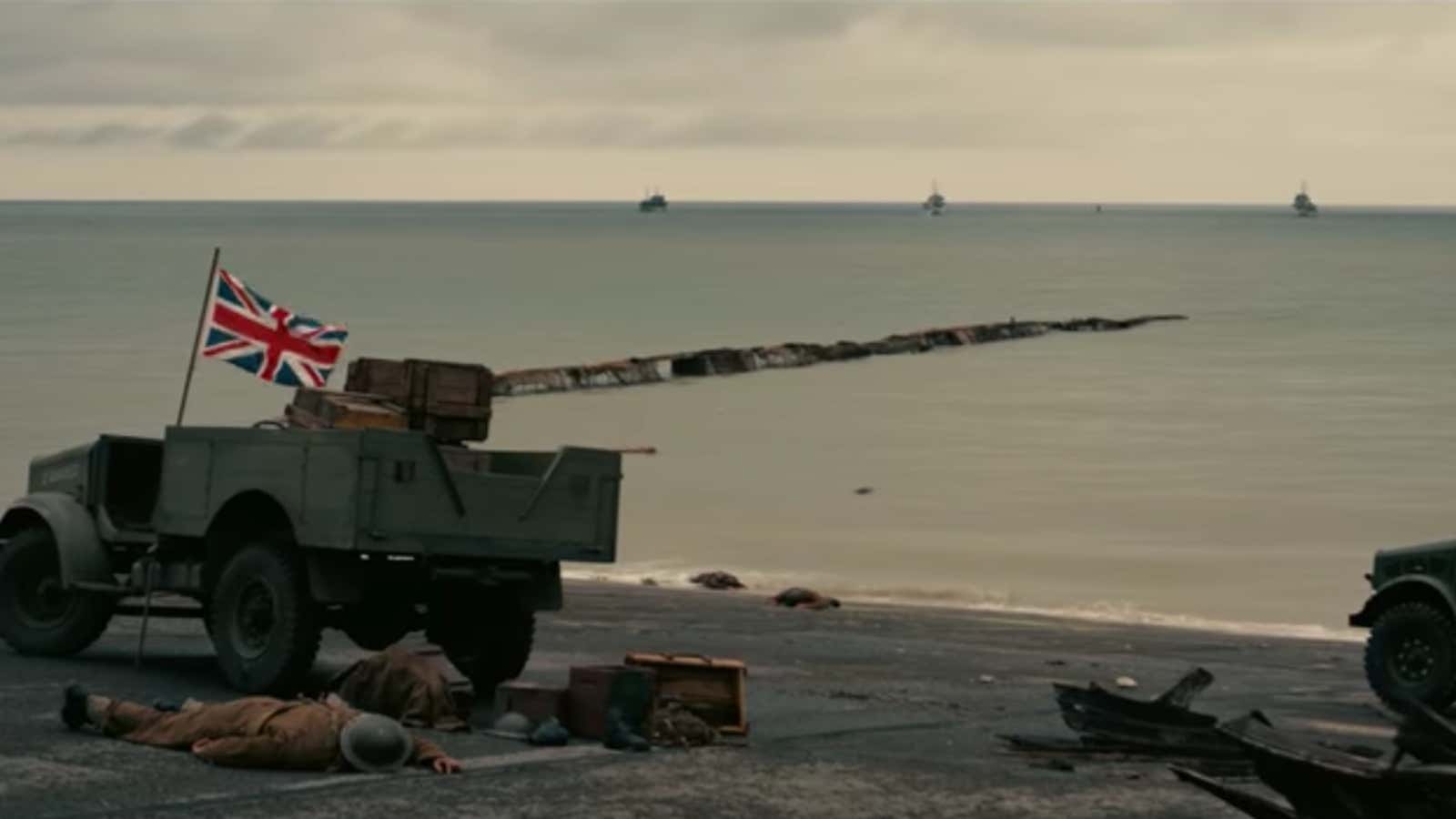Christopher Nolan has journeyed into a black hole, infiltrated dreams, and surveyed the streets of Gotham City (thrice). His work is often forward-looking, speculative, metaphysical. But his next film will render a very real and very historic event: the evacuation of Dunkirk, a major turning point in World War II when more than 300,000 British, French, and Belgian soldiers, trapped on the shores of northern France and surrounded by German troops, miraculously escaped across the English Channel.
Warner Bros. released the first full trailer for Dunkirk yesterday, following the brief ”announcement” trailer teased in August. Nolan’s penchant for practical effects is on full display—not only did he reportedly crash an actual, vintage World War II plane during filming, but he also commissioned the use of real warships:
Much of the movie was filmed in Dunkirk, France, on the same beaches where the evacuation took place 76 years ago. Nolan, a film purist, shot Dunkirk on a combination of IMAX 65mm film and 65mm large format film with the help of cinematographer Hoyt van Hoytema, who also worked on Nolan’s Interstellar (2014).
Dunkirk might be more grounded in reality than most of the director’s previous films, but is certainly no less ambitious.
They say all of the great filmmakers try making a war film at some point in their careers. Francis Ford Coppola made Apocalypse Now. Stanley Kubrick made Full Metal Jacket. Steven Spielberg has made several. There are, naturally, exceptions (Martin Scorsese, for one), but given the rich cinematic potential of war, it’s not surprising that one of the 21st century’s visionary directors gave the genre a go.
And there’s perhaps no better subject to depict than the Dunkirk evacuation, a key moment in World War II history. Some historians question Hitler’s decision to approve a “Halt Order,” which allowed the British army just enough time to escape from Dunkirk. Had the German army continued advancing, it likely would have wiped out the Allied forces stranded there. While it was technically a defeat for the Allies, the successful evacuation became a morale booster when the rescued British Expeditionary Force prepared to return to battle.
Though it’s taught in schools in the UK, the evacuation isn’t as much a part of American curricula—in part, perhaps, because the US didn’t formally enter the war until over a year after the events at Dunkirk—so maybe Nolan’s film can serve as a history lesson too.
Dunkirk comes out July 21, 2017.
